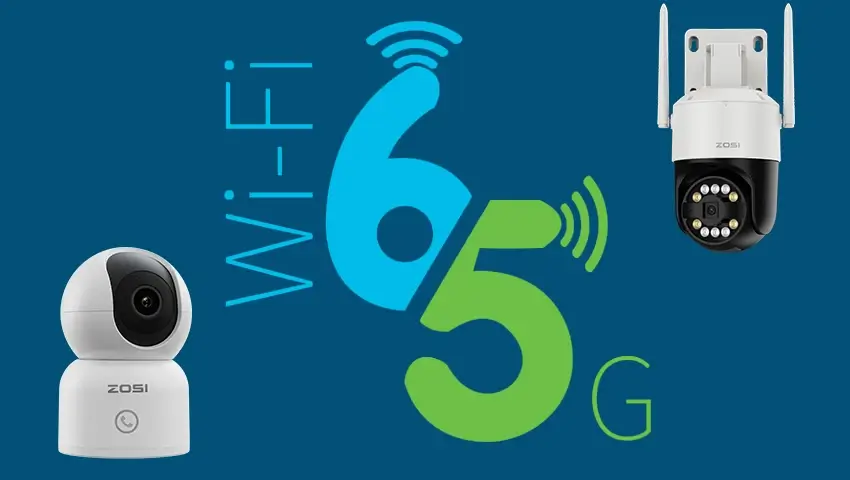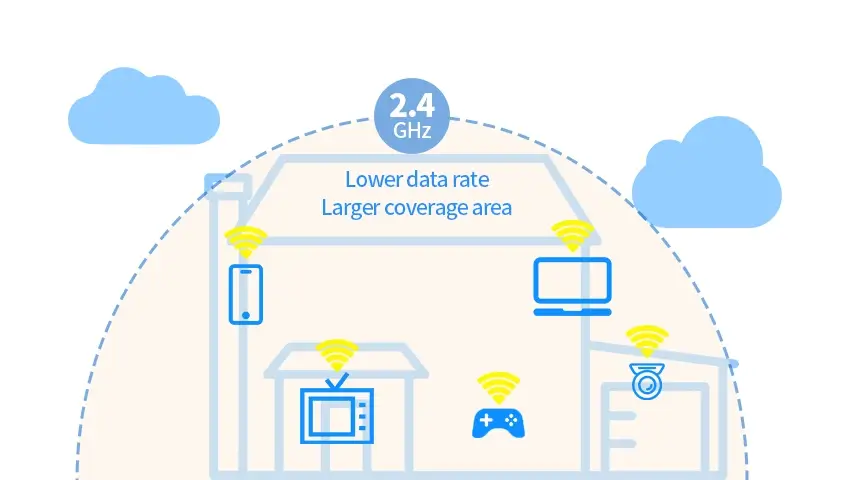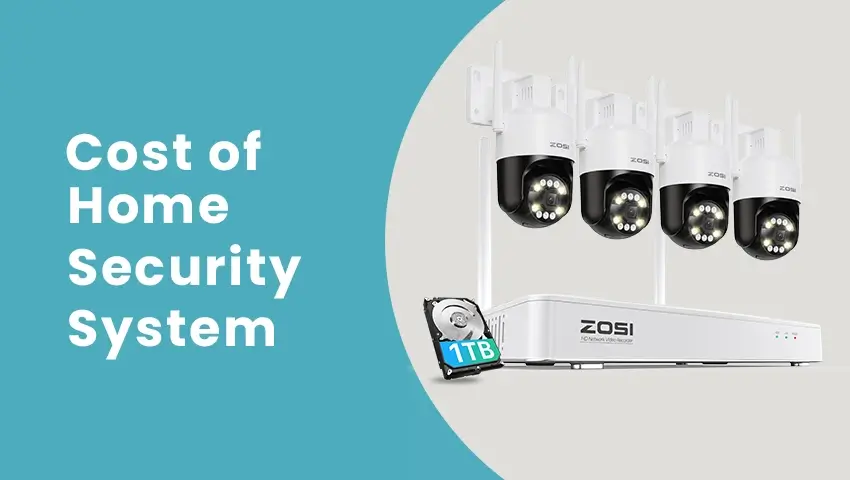Evaluating WiFi 6 vs. 5G for security systems is paramount, as the chosen wireless technology directly dictates the responsiveness, range, and resilience of connected surveillance devices. Understanding the nuances of each standard empowers informed decisions that optimize performance and safeguard your property.
Contents
Understanding WiFi 6 and 5G
1. WiFi 6 (802.11ax) – The Next-Gen Local Network
WiFi 6 is the latest WiFi standard, offering:
- Faster speeds (up to 9.6 Gbps) – Ideal for 4K/8K security cameras.
- Lower latency – Crucial for real-time monitoring.
- Better multi-device handling (OFDMA & MU-MIMO) – Supports dozens of smart cameras and IoT devices.
- Improved battery efficiency (Target Wake Time) – Extends battery life for wireless security devices.
2. 5G – The Ultra-Fast Mobile Network
5G is the newest cellular technology, providing:
- Blazing-fast speeds (1-10 Gbps, depending on band) – Great for remote monitoring.
- Ultra-low latency (1-10ms) – Essential for AI-powered security analytics.
- Wider coverage (with mmWave & sub-6GHz bands) – Suitable for large properties.
- No dependency on local routers – Works anywhere with 5G coverage.
WiFi 6 vs. 5G for Security Systems: Key Differences
| Category | WiFi 6 | 5G |
|---|---|---|
| Speed | Up to 9.6 Gbps (ideal for high-resolution video streaming) | Ranges from 1–10 Gbps, depending on the frequency band |
| Latency | Around 5–10 ms, suitable for real-time monitoring | As low as 1–10 ms, perfect for AI-driven security analytics |
| Coverage | Limited to the range of your router (best for fixed locations like homes or offices) | Offers wider coverage, especially with sub-6GHz bands (ideal for remote sites) |
| Device Support | Optimized for high-density IoT environments, supporting multiple cameras and smart devices | Better for mobile or remote surveillance where WiFi signals may be weak |
| Power Efficiency | Excellent, thanks to Target Wake Time (TWT), which extends battery life | Moderate, as cellular connectivity tends to consume more power |
| Cost | More cost-effective, as it doesn’t require a cellular data plan | Higher operational costs due to 5G subscription fees |
Which is Best for Security & Surveillance?
1. Choose WiFi 6 If:
- You have multiple security cameras in a fixed location (home/office).
- You need cost-effective, high-bandwidth connectivity.
- You want seamless integration with smart home systems (e.g., Alexa, Google Home).
2. Choose 5G If:
- You need remote or mobile surveillance (construction sites, fleet tracking).
- You require ultra-low latency for AI security analytics.
- Your property lacks reliable wired/WiFi infrastructure.
3. Hybrid Solution?
Many advanced security systems now combine WiFi 6 for local devices + 5G for backup/failover, ensuring uninterrupted monitoring.
Future Trends: WiFi 6E & 5G Advanced
WiFi 6E (6 GHz band) will further reduce interference, perfect for high-security environments.
5G Advanced (Release 18+) will enhance IoT security with better AI integration.
Key Takeaways
- WiFi 6 excels in fixed, high-density environments (homes, offices).
- 5G is better for remote, mobile, or AI-driven surveillance.
- A hybrid approach (WiFi 6 + 5G backup) ensures uninterrupted security monitoring.
Final Recommendation
Strategically balancing the strengths of WiFi 6 vs. 5G empowers homeowners and businesses to create robust security ecosystems tailored to their specific needs. While WiFi 6 excels in local, high-density environments, 5G provides unparalleled connectivity for remote or mobile surveillance applications. To explore customized security solutions that leverage the optimal blend of these technologies, consult with ZOSI’s expert team for tailored guidance and innovative security strategies.





